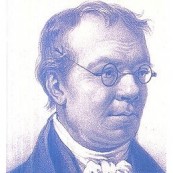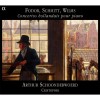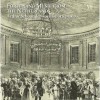传记
Johann Wilhelm Wilms (March 30, 1772 (baptized) – July 19, 1847) was a Dutch-German composer, best known for writing Wien Neêrlands Bloed, which served as the Dutch national anthem from 1815 to 1932.
Wilms was born in Witzhelden near Solingen. After lessons from his father and oldest brother in piano and composition, Wilms studied flute on his own. He moved to Amsterdam in 1791 where he played flute in two orchestras and was soloist in Mozart and Beethoven piano concertos, giving them their Dutch premieres.
He also taught piano at the Koninklijk Nederlandsch Instituut voor Wetenschappen, interviewed applicants for church organist positions, judged composition competitions and wrote for the Allgemeine musikalische Zeitung, a publication he once used as a soapbox to complain about the lack of performance of music by contemporary Dutch composers like himself.
As the events of the French Revolution affected the Netherlands, Wilms wrote several patriotic hymns. However, following the fall of Napoleon, and the return of the House of Orange to power, Wilms in 1816 won the open competition for the new Dutch anthem with Wien Neêrlandsch bloed (with lyrics by Hendrik Tollens), leading to lots of commission from churches and other organizations.
For 23 years Wilms was the organist at a Mennonite church in Amsterdam, where he died.
Wilms wrote seven symphonies, the one in F major was lost and the others sank into obscurity after his death. The chronology of the five early symphonies is not clear even to experts.
His Symphony No. 6 in D minor, which won first prize at the Société des Beaux-Arts Ghent, and Symphony No. 7 in C minor were recorded in 2003 by Concerto Köln for Deutsche Grammophon.
Due to a misunderstanding about publication dates, conductor Werner Ehrhardt at first thought that Wilms had lived in a later period and therefore had written music in an antiquated style. But after being straightened out, given the enthusiasm his ensemble felt for this music, Ehrhardt decided to record these two symphonies anyway. Scholars are more certain these are later works because of their use of cyclic form.









